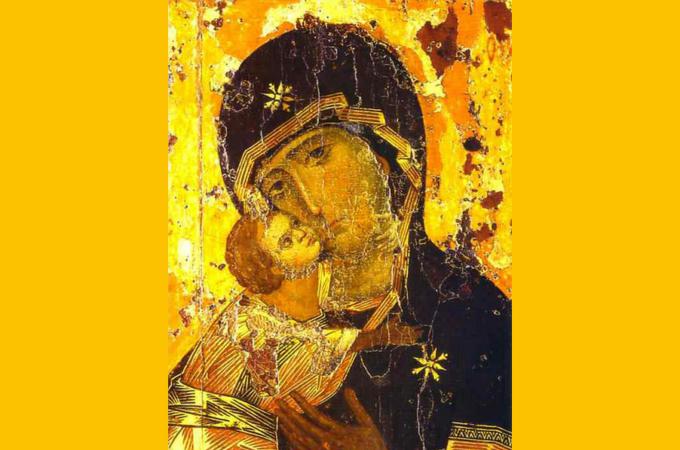Mary ever-virgin
Q. Would you please explain the apparent contradiction in the verse in Matthew's Gospel (1:25) that says, "He (Joseph) had no relations with her until she bore a son, and he named him Jesus"? The use of the word "until" would seem to indicate that conjugal relations may have occurred after the birth of Christ. This is confusing to those of us who have constantly heard Mary referred to as "ever-virgin." (Freehold, New Jersey)
A. You are correct on the Catholic teaching: that Mary remained always a virgin -- before, during and after the birth of Jesus. The Catechism of the Catholic Church quotes St. Augustine, who said that Mary "remained a virgin in conceiving her Son, a virgin in giving birth to him, a virgin in carrying him, a virgin in nursing him at the breast, always a virgin" (No. 510).
As regards the verse to which you refer (Mt 1:25), current usage of the word "until" often does imply that the action in question did happen later on, but that is not the meaning of the original language. The Greek word that is translated "until" in Matthew ("heos") says nothing one way or the other about what happened afterward.
Note that it is the same word used in the Greek translation of 2 Samuel 6:23, where we read that "Michal, the daughter of Saul, had no children until the day of her death." (We are not to assume, of course, that she had children after her death!)
But to avoid the understandable confusion that you point out, I myself prefer the translation in the New Jerusalem Bible: "When Joseph woke up, he did what the angel of the Lord had told him to do; he took his wife to his home; he had not had intercourse with her when she gave birth to a son; and he named him Jesus."
Q. A very dear friend of mine died recently. She was a Methodist, and I do not know whether they have services -- as we have Masses -- to mark the anniversary of someone's death. If they do not, I was wondering if it would be appropriate for me to request that a Catholic Mass be celebrated for her on the anniversary of her passing. (Camp Hill, Pennsylvania)
A. The national website of the United Methodist Church notes that "recurring memorial acts and services are occasions both of healing and of celebration. Mourners are especially open to supportive ministries on such occasions as Christmas, holidays, birthdays and anniversaries of marriage or of death." So you might want to inquire whether your deceased friend's local church might be open to conducting a memorial service on her anniversary.
But your other option is to have a Catholic Mass celebrated for her intention, and that is certainly allowed by the Catholic Church. (In fact, under certain circumstances the church's Code of Canon Law permits a Catholic funeral service to be conducted for a Protestant -- not infrequently, for the spouse of a Catholic.)
Some Catholics might worry about offending the Protestant family, since Protestants generally reject the notion of purgatory as a period of purification. But the United Methodist Church acknowledges that it has "no one clear teaching on what happens to the dead between their death and the resurrection and judgment at the last day."
I shouldn't think anyone would mind your praying for your friend's quick passage into heaven, and when I have sent Mass cards on such occasions, people have been universally grateful.
- - -
Questions may be sent to Father Kenneth Doyle at askfatherdoyle@gmail.com and 30 Columbia Circle Dr., Albany, New York 12203.
- Father Kenneth Doyle is a columnist for Catholic News Service



















